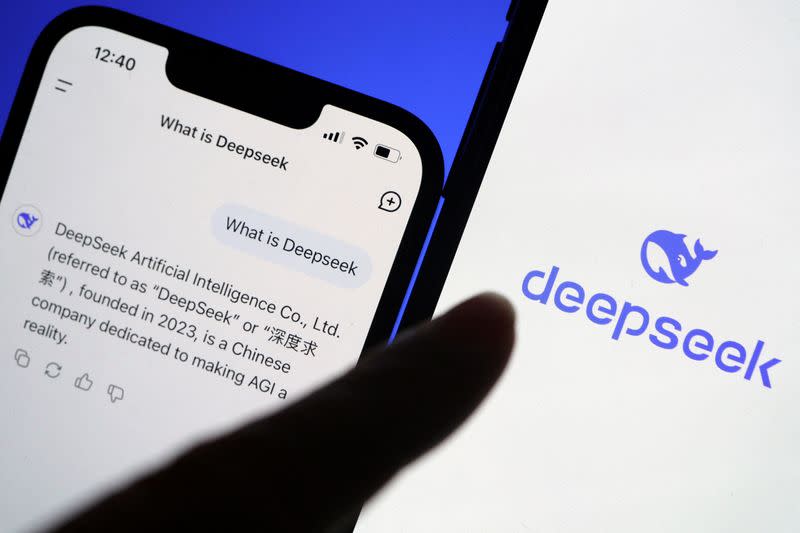South Korea’s spy agency has added to global concern around data policies of Chinese artificial intelligence app DeepSeek this week, saying it collects excessive amounts of personal data.
Korea’s National Intelligence Service (NIS) said DeepSeek gives advertisers unlimited access to user data and also uses this data to further train itself.
“Unlike other generative AI services, it has been confirmed that [DeepSeek’s] chat records are transferable,” the NIS said in a statement issued on Sunday.
Also on AF: Investors Pour Money Into China Tech Stocks Amid DeepSeek Fever
The app includes a function that collects keyboard input patterns to identify individuals and then communicates this information to Chinese companies’ servers such as volceapplog.com, it added.
The agency warned that the app stores users’ data in Chinese servers, which under Chinese law can be accessed by Beijing.
The NIA’s warning is not the first time concerns have been raised around DeepSeek’s data storage and transmissions.
Last week, security researcher NowSecure revealed it found DeepSeek was transmitting sensitive data over the internet without encryption.
In-line with the NIA’s findings, NowSecure claimed DeepSeek was collecting user and device data, which can be eventually be “used for tracking and de-anonymisation.”
This data was also being sent to China and transmitted to servers controlled by ByteDance, it said.
NowSecure also questioned DeepSeek’s security practices, saying it was using outdated encryption systems and storing information such as usernames and passwords unsecurely.
Censorship, misinformation
Meanwhile, South Korea’s NIS further noted that DeepSeek also provided different answers to potentially sensitive questions in different languages.
It cited one such question as asking for the origin of kimchi – a spicy, fermented dish that is a staple in South Korea.
When asked about it in Korean, the app said kimchi is a Korean dish, the NIS said.
Asked the same question in Chinese, it said the dish originated from China, it said. DeepSeek’s responses were corroborated by Reuters.
The origin of kimchi has at times been a source of contention between South Koreans and Chinese social media users in recent years.
DeepSeek has also been accused of censoring responses to political questions such as the 1989 Tiananmen Square crackdown, which prompts the app to suggest changing the subject: “Let’s talk about something else.”
Global crackdown
Scrutiny and warnings on DeepSeek’s data collection come at a time when use of the China-owned AI app has exploded world-over, particularly because of its cheaper, open-source model.
DeepSeek’s launch late last month had rocked Silicon Valley and tanked equities linked to chipmakers, data centres and other tech providers world-over.
But in the days since, government ministries in the United States, Japan, Australia, Taiwan, South Korea, India and Italy have blocked access to the app for their employees after citing security concerns.
Some lawmakers in the US have even proposed a law that could impose a million-dollar fine, and even jail time, on Americans found to be using the app.
When asked about DeepSeek’s security practices, a Chinese foreign ministry spokesperson told a briefing on February 6 that Beijing attaches great importance to data privacy and security and protected it in accordance with the law.
The spokesperson also said Beijing would never ask any company or individual to collect or store data in breach of laws.
- Reuters, with additional editing and inputs from Vishakha Saxena
Also read:
China ‘Promoted DeepSeek AI Launch Prior to US Stock Plunge’
Curbing Chinese Access to US AI Models May be Hard: Analysts
Meta Set up ‘War Rooms’ to Study DeepSeek AI Model – Fortune
DeepSeek Breakthrough or Theft? US Probes ‘AI Data Breach’
Tech Selloff Extends to Japan as DeepSeek Puts Focus on AI Costs
‘AI Breakthrough’ by China’s DeepSeek Rocks US Tech Giants
Bytedance ‘Plans $20 Billion Outlay on AI Infrastructure This Year’
























